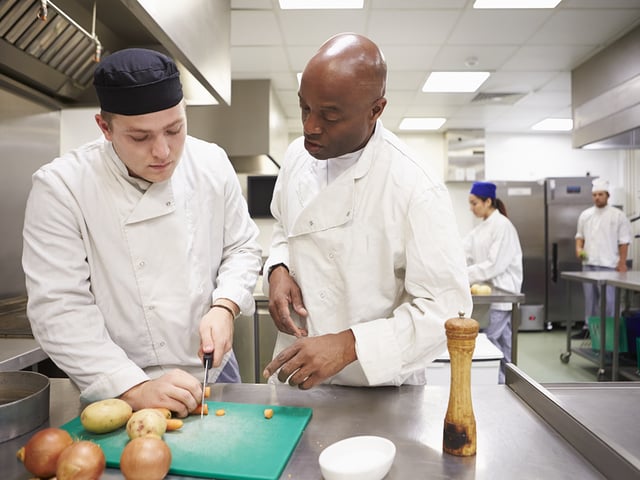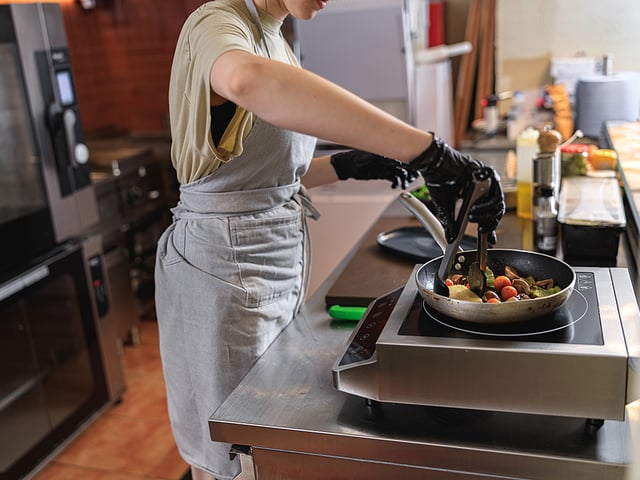
What Is a ServSafe Proctor?
ServSafe provides information and testing related to safe food and alcohol service for dining and drinking establishments. For those considering becoming an instructor or proctor to assist with teaching and testing, there are several differences in the roles that should be noted, and you should know that it is possible to become both an instructor and a proctor.
Differences Between a ServSafe Proctor and a ServSafe Instructor
A ServSafe instructor teaches the ServSafe Manager training course, but does not administer the exam. They must have a high school diploma or GED, and must also have advanced education or professional experience, such as a bachelor’s degree in Food Science or employment as a health inspector or Registered Dietician. More on acceptable qualifications can be found here.
A ServSafe Registered Proctor administers the exam but does not teach ServSafe courses. Because of this, a proctor is not eligible for instructor benefits.
It is possible to serve in a dual role as both a ServSafe instructor and proctor, but a special certification is required. While you are able to serve both roles with this certification, it is important to be mindful of their limitations and restrictions. For example, while proctoring the exam, it would not be appropriate to offer teaching help to students, as that is outside the proctor role and a violation of the job parameters.
Role and Requirements of a ServSafe Proctor
To become a ServSafe proctor, you do not need special work experience, but you must provide current employment status, work and education histories, and references.
The role of a ServSafe proctor involves several duties, including these:
- Following the standards and ethics in the ServSafe Examination Administration Handbook
- Following the standards of the ServSafe Performance Agreement
- Securing the print and online ServSafe Food Protection Manager Certification Exam
- Scheduling the online and print examinations
- Maintaining exam content confidentiality
- Maintaining a secure testing environment
- Knowing when you must excuse yourself due to a conflict of interest
In addition to this, a ServSafe proctor serves as a liaison between the ServSafe offices and its students to ensure that the requirements are met and all conditions are adhered to. This includes verifying the examinee’s ID, monitoring to ensure that no aids are being used during the test, and returning the completed exams (if paper) to ServSafe for scoring.
If the test is being given online, the proctor will also be responsible for ensuring that all of the necessary technology (Internet connection, PC, etc.) is working adequately prior to the start of the test.
Ensuring that food and alcohol are handled and served properly is a vital function that can prevent foodborne illnesses, and ServSafe exam proctors are essential to safeguarding the service industry from unsafe practices. Individuals who would like to become proctors will have to go through several steps to become certified, as outlined by ServSafe.
Keep Reading

ServSafe Food and Alcohol Safety Exams Blog
How Long Does ServSafe Certification Last?
The ServSafe certification is a critical credential for professionals i…

ServSafe Food and Alcohol Safety Exams Blog
The Big Eight Food Allergens are Now the Big Nine
An allergen is typically a harmless protein that, for some, the immune …

ServSafe Food and Alcohol Safety Exams Blog
ServSafe Food Handler vs. ServSafe Manager: Which Course is Right for You?
The food service industry requires stringent adherence to safety and hy…